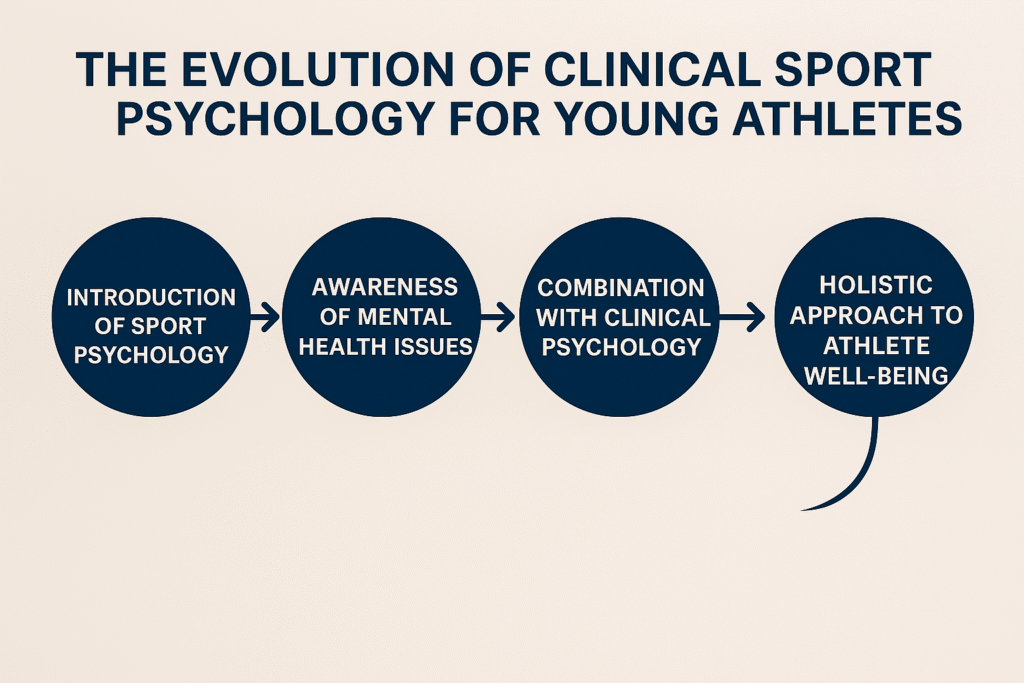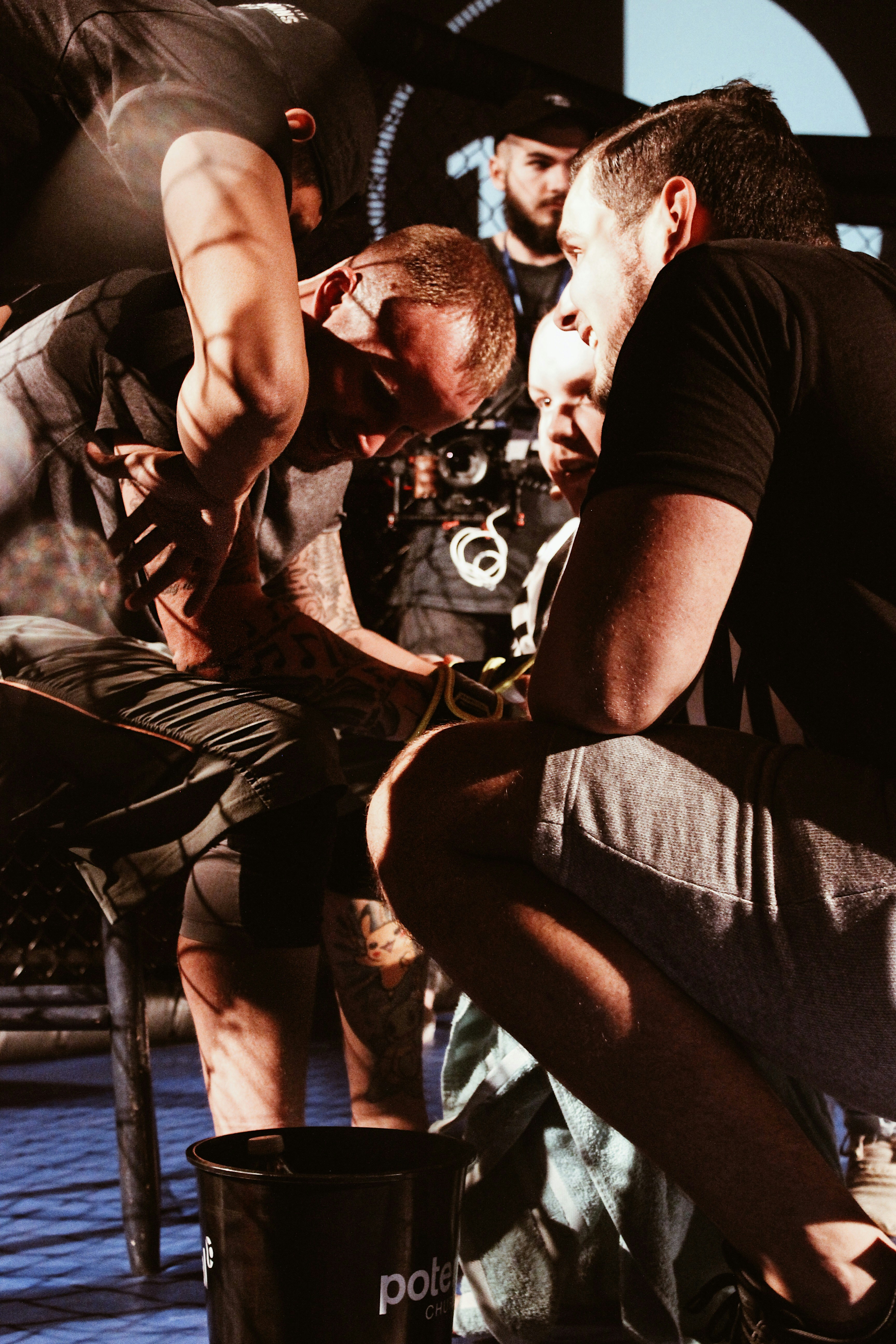Understanding Clinical Sport Psychology Development
Clinical sport psychology has emerged as a vital component in the mental and emotional development of young athletes. By focusing on the psychological aspects inherent in sports, this field aims to enhance performance, mental resilience, and overall well-being among youth involved in athletics. The significance of clinical sport psychology lies in its ability to equip athletes with the tools necessary to manage stress, navigate competition, and cultivate a positive mindset, all of which are crucial attributes for success.
A primary focus of clinical sport psychology is fostering mental resilience. Young athletes face a myriad of challenges, from balancing academic responsibilities to managing the pressure of competition. By implementing psychological strategies, these athletes learn to cope with adversity, enabling them to recover swiftly from setbacks and maintain motivation. Workshops and training sessions often emphasize techniques such as visualization, self-talk, and mindfulness, which are instrumental in helping athletes build confidence in their abilities.
Furthermore, the development of clinical sport psychology programs involves comprehensive training for professionals in the field. This ensures that they are well-equipped to provide mentorship tailored to the unique needs of young athletes. Effective programs often involve a blend of theoretical knowledge and practical applications, allowing athletes to experience firsthand the benefits of psychological strategies in real sports environments. The integration of personal mentorship establishes a supportive network for athletes, empowering them to navigate their careers through various stages, from early development to elite performance.
Ultimately, the impact of clinical sport psychology extends beyond enhanced performance in competitions; it promotes holistic development, encouraging young athletes to thrive both on and off the field. In fostering mental toughness and emotional health, young athletes are better prepared to meet the demands of their chosen sports, establishing a foundation for long-term success and well-being.
Global Trends and Regional Efforts in Sport Psychology
The integration of clinical sport psychology into athletic programs for young athletes is gaining momentum worldwide, with various countries spearheading initiatives aimed at enhancing mental well-being in sports. Nations such as Australia, Canada, and the United Kingdom have implemented comprehensive programs that underscore the importance of mental health, aiming to equip young athletes with the psychological tools necessary for both competition and personal development. These initiatives frequently focus on creating a supportive environment that encourages athletes to seek psychological assistance without fear of stigma, transforming the narrative around mental health in sports.
In Australia, the establishment of the National Framework for Mental Health and Wellbeing in Sport emphasizes the relevance of psychological health in athletic training. This framework provides guidelines for coaches and parents on how to recognize mental health issues and offer appropriate support. Furthermore, various sports associations in the country have begun incorporating clinical sport psychologists into their training regimens, helping young athletes develop resilience and coping strategies that are crucial for competitive settings.
Similarly, Canada has made strides in this area through programs that focus on mental health education in youth sports. The Canadian Sport Institute offers workshops and resources aimed at parents, coaches, and athletes to foster open dialogues about mental health challenges. These efforts have contributed to a significant cultural shift, where acknowledging psychological struggles is not only accepted but actively addressed within the sports community.
The United Kingdom has also implemented significant changes, with initiatives supported by professional sports organizations aimed at dismantling the stigma surrounding mental health. The Youth Sport Trust, for instance, promotes programs that build resilience through mental health resources, ultimately aiming to foster an environment where young athletes feel secure accessing psychological support services.
Such global trends illustrate that integrating clinical sport psychology into youth athletics is not merely a passing trend; it is reshaping the landscape for young athletes. By prioritizing mental health, these regions are laying the groundwork for a healthier, more supportive sports culture that encourages the next generation to excel both physically and mentally.
Challenges and Innovations in Clinical Sport Psychology
The landscape of clinical sport psychology for young athletes faces a multitude of challenges that could significantly impede progress in the field. A notable barrier is the scarcity of qualified psychologists who specialize in the specific demands and nuances of sports psychology. With a limited number of professionals in the field, there is often an inconsistency in the quality of care that young athletes receive. This situation is compounded by varying professionalism standards across different regions and sports disciplines, leading to an inadequate and sometimes inappropriate integration of psychological principles within training and competition settings.
Moreover, there exists a significant resistance to adopting innovative methodologies in traditional sports environments. Many organizations prioritize physical performance over mental well-being, often viewing psychological support as a secondary concern. This reluctance hinders the incorporation of contemporary practices that could greatly benefit young athletes, as there continues to be a stigma associated with mental health within the sporting community.
To address these challenges, emerging approaches are being explored that leverage technology-driven solutions. For instance, mental resilience apps are becoming increasingly popular among athletes, providing them with tools to enhance their psychological skills independently. Additionally, online therapy options have gained traction, offering flexible and accessible support for young athletes and their families. These innovations not only break down geographical barriers but also foster a more accepting environment for discussing mental health issues in sports.
Furthermore, the evolving role of clinicians in sports settings is critical to overcoming these challenges. Clinicians are now beginning to embrace new ideas and practices, promoting a holistic approach to athlete wellness. By integrating psychological support into the fabric of training programs, these professionals can revolutionize how mental health is perceived and addressed within the world of sports, ultimately enhancing the overall performance and well-being of young athletes.
The Future of Clinical Sport Psychology and Its Impact
The field of clinical sport psychology is poised for significant advancements, reflecting the evolving landscape of athletic training and mental health awareness. As sports continue to place a premium on mental resilience, the role of clinical sport psychology will undoubtedly grow. Emerging therapeutic techniques tailored specifically for young athletes will likely include innovative approaches such as mindfulness-based interventions, cognitive behavioral strategies, and advanced biofeedback technologies. These methods aim to enhance mental fortitude and optimize performance under pressure.
One of the foremost factors influencing the future of clinical sport psychology is the increase in international collaboration among professionals in the field. Experts from various countries will converge to exchange knowledge and best practices, fostering an atmosphere of shared learning. Such cooperation is crucial for standardizing methodologies and ensuring that young athletes receive uniform and effective mental health support, regardless of their geographical location. This unification will not only benefit athletes but also build a robust community of practitioners dedicated to advancing the science of sport psychology.
As mental health increasingly becomes a priority, clinical sport psychology will be instrumental in shaping the experiences of the next generation of athletes. Future developments may include the incorporation of mental skill training into standard athletic programs, ensuring that young competitors receive comprehensive support from both physical and psychological perspectives. The shift towards recognizing mental well-being as integral to athletic success will transform how coaches, parents, and athletes approach the pressures associated with competition.
Ultimately, clinical sport psychology’s future promises to foster a healthier, more balanced approach to athletics. By prioritizing mental health and demonstrating its significance in performance, it will empower young athletes to navigate the complexities of modern sports, ensuring they thrive not only in competition but also in life beyond sports.



